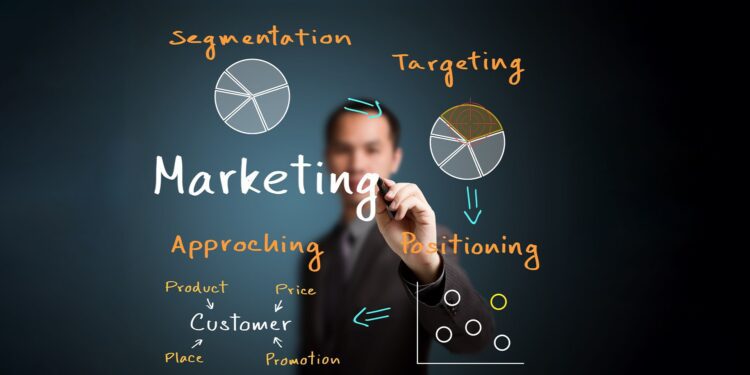The contemporary marketing arena is experiencing a monumental shift. Technological advancements are occurring at unprecedented rates, while consumer behaviors are continuously evolving to keep pace with these innovations.
A significant aspect of this evolution includes a growing skepticism towards traditional advertising and an increased demand for genuineness. In light of these critical developments, Vladimer Botsvadze asserts that a staggering 99% of marketers are not adjusting to this emerging landscape.
Botsvadze stands at the forefront of digital transformation and the marketing industry. He has delivered highly acclaimed keynote speeches around the globe, received numerous accolades (and as a judge, awarded others), sits on advisory boards for both the United States Artificial Intelligence Institute and the United States Data Science Institute, and has been featured in virtually every prestigious business publication. Through his initiatives, he imparts valuable insights that distinguish successful marketers and guides brands through the ever-changing challenges expected in 2025 and beyond.
The personal brand revolution
At the heart of Botsvadze’s beliefs is the significance of personal branding. With consumers yearning for greater authenticity and direct dialogue than ever before, establishing a robust personal brand becomes crucial for marketers and business leaders. To grasp the weight of a personal brand, one can look into Botsvadze’s journey from a solitary tweet with zero followers in 2014 to becoming a recognized global marketing influencer in less than a decade.
“Personal branding is everything in today’s world,” he states. “It centers around cultivating direct communication with consumers.” He highlights figures like Elon Musk, who effectively leveraged his personal brand to significantly enhance Tesla’s success. In stark contrast to traditional automakers reliant on conventional advertising, Tesla achieved a brand value of nearly $72 billion in 2024 without a dedicated advertising team. Botsvadze believes this remarkable success is due to Musk’s ability to communicate directly with consumers and transform followers into brand advocates.
The decline of traditional advertising
Among the most notable changes in marketing is the diminishing effectiveness of traditional advertising. Botsvadze indicates that advertisement consumption has plummeted by 90%, alongside a steady decline in consumer trust towards advertisements over the last 15 years. He attributes this trend to the rise and availability of ad-free streaming services such as Netflix, Spotify, and Amazon Prime, combined with the prevalent use of ad blockers.
“We are in the streaming economy,” Botsvadze clarifies. “Currently, 750 million consumers are employing ad blockers on their mobile devices.” This shift calls for a new methodology to connect and engage with audiences.
Embracing digital transformation
For organizations aiming to innovate and enhance their market positioning, Botsvadze underscores the necessity of rebranding themselves as media enterprises. Social media should not be viewed as a one-way street but as a two-way dialogue with consumers.
Humanizing your brand and creating pathways for these direct interactions is a vital initial step in this digital transformation. Botsvadze strongly critiques brands that treat social media merely as a traditional advertising platform and neglect to engage in significant conversations with their audience.
The AI advantage
Recent developments in artificial intelligence offer a considerable competitive edge for businesses across numerous sectors. Botsvadze claims that AI can enhance business efficiency by nearly 40% and could lead to substantial reductions in operational expenses.
He forecasts that “AI will take the place of 30% of the global workforce by 2030” and stresses the need for marketers to embrace and utilize AI technologies effectively. He anticipates that AI’s contribution to the global GDP could reach an astonishing $20 trillion by the same year.
Botsvadze’s strategies for success in 2025 and beyond
1. Cultivate a strong personal brand: Dedicate time and energy to building your personal brand. Share your knowledge, showcase your character, and engage directly with your audience.
2. Embrace content creation: Position your brand as a media entity by producing valuable, engaging content that resonates with your target audience.
3. Prioritize two-way communication: Move past merely broadcasting content to encourage authentic discussions with your audience. Respond to feedback, participate in conversations, and demonstrate attentiveness.
4. Leverage AI: Investigate methods to incorporate AI into your marketing strategy, ranging from personalization and content creation to customer support.
5. Focus on a consumer-centric strategy: Steer clear of conventional advertising tactics and adopt methodologies that deliver value to your audience while fostering long-term relationships.
6. Commit to continuous learning and adaptation: Stay updated on emerging trends and technological advancements. As Botsvadze aptly states, “Self-education is paramount.”
7. Measure success through impact: Shift focus from traditional metrics and evaluate success based on the actions inspired and the meaningful connections developed with your audience.
Transform your mindset
To thrive in 2025 and beyond, marketers must embrace a mindset of transformation. They should be prepared to question conventional advertising practices, explore new technologies, and continually pursue innovative ways to provide value to consumers.
Botsvadze also cautions against the risks of complacency, referencing once-prominent companies like Blockbuster and Nokia that lost substantial market share—or, in Blockbuster’s case, ceased to exist—due to their inability to evolve alongside shifting consumer behaviors.
“We are in the golden age of social media,” he observes. “Remarkable content is produced every single minute.” Consequently, brands willing to adapt will find limitless prospects.
Looking ahead
It is evident that the marketing domain will keep evolving rapidly. The emergence of AI, the decline of advertising, and the growing significance of personal branding and consumer engagement are just the inception.
Botsvadze asserts that the most successful marketers will be those who can navigate and adapt to these transformations, harnessing emerging technologies while maintaining a human connection. He suggests that brands should “market like the 1%, not the 99%.” Foster proactivity and innovation, always prioritizing the cultivation of meaningful connections with your audience.
Transformation is not solely about adopting new technologies or platforms; it necessitates a fundamental change in how brands communicate, engage, and deliver value to their customers. By embracing their own brand and focusing on consumer-centric strategies, marketers can set themselves up for tremendous success in 2025 and beyond.


